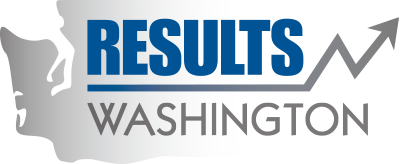Archived: Woodstoves replaced with cleaner burning technologies
Emissions of wood smoke cause community air quality to reach unhealthy levels of particulate matter. These elevated levels increase the risk of lung and heart diseases, and premature death. There is no safe "threshold" for particle pollution. Even when within national air quality standards, particle pollution impacts human health.
Burning wood for home heat is the principal cause for high fine particle levels in winter. The problem is most significant during cold, still, winter weather, when pollution is trapped close to the ground and can build up over many days.
Older wood heating devices emit far more particle pollution than newer certified wood stoves or alternative heat sources that use electricity or gas.
- In high risk areas, Washington replaced 3,994 uncertified wood stoves as of December 2015. Hundreds more devices have been taken off the market and their metal recycled through "bounty" programs.
- Ecology and its local air agency partners work in many high-risk communities around the state to replace older uncertified stoves with cleaner alternatives, such as newer EPA certified wood stoves, electric or gas heat.
- Despite success with this grant program, Ecology estimates that there are more than 200,000 old and high- polluting stoves in use in the state today. Replacing older, uncertified stoves in more densely populated areas reduces public health risk.
A number of efforts are underway:
- In 2015-17, Ecology awarded two million dollars in grant money to seven communities that are vulnerable to violating national air pollution standards for fine particles. These grant programs focus on replacing old stoves in low-income, high wood-use households.
- Ecology and local air agencies issue burn restrictions in communities when pollution levels are reaching unsafe levels.
- Ecology coordinates with all local air agencies to implement wood smoke reduction programs - providing wood stove user education on proper fuel-use, fuel-loading, moisture content and other best practices for wood- burning devices.
- Conducting "bounty" programs in select communities to get uncertified wood stoves out of circulation.
- Developing improved test methods that promote cleaner technology;
- Encouraging research into retrofit technology as another means of lowering emissions from high-polluting stoves;
- Developing a national reference method for wood burning devices in collaboration with other state and federal partners;
You can help reduce fine particle pollution by:
- Using dry well-seasoned fuel wood and following manufacturer recommendations for the use of your wood stove.
- Complying with burn bans that are issued in your community. Sign up for burn ban notification programs and/or check for burn bans at www.waburnbans.net
- Switching to less polluting sources of heat – for information, access www.epa.gov/burnwise/faqconsumer.html
- Scrapping any pre-1991 wood stove ... it is illegal to sell or re-sell uncertified wood stoves in Washington.
